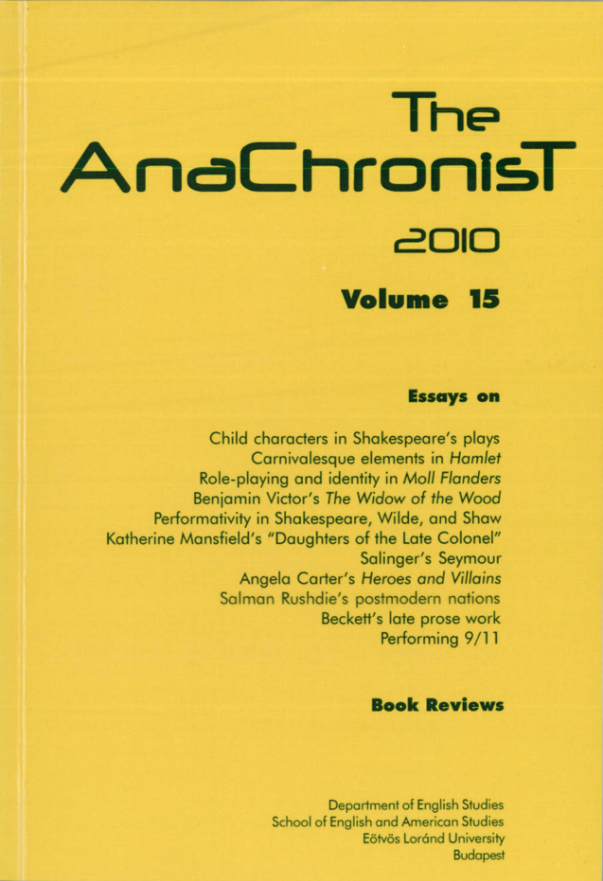Seymour
Key to Salinger's Philosophy of Composition and Publication
DOI:
https://doi.org/10.53720/CONP2199Abstract
In his rare interviews, Salinger explains his choice of retiring from publication as a private person; his stories, in contrast, provide an insight into the author’s intellect, and allow us to realize the artist’s motivation for writing only for the sake of writing. The present paper focuses on the artistic principles of the two author characters in Salinger’s oeuvre, Buddy and Seymour Glass, considering them as the alter-ego and the artistic ideal of the author, respectively. First the Glass’s way of communication is presented, emphasizing the importance of key concepts, such as perfection and the method of not-aiming. Then Seymour’s suicide is investigated, making the point that it should not be considered as the poet’s act aiming at ultimate perfection in his existence but as an act of a person seriously harmed by his war experiences. Therefore, Seymour is a contradictory character, shown as a perfect artist and a failed man. Ultimately, the paper suggests that Salinger saw the contradiction between his ideal and reality’s limitations, which explains his attitude to publishing and his gesture of granting Buddy the authorship of his own Seymour stories.

